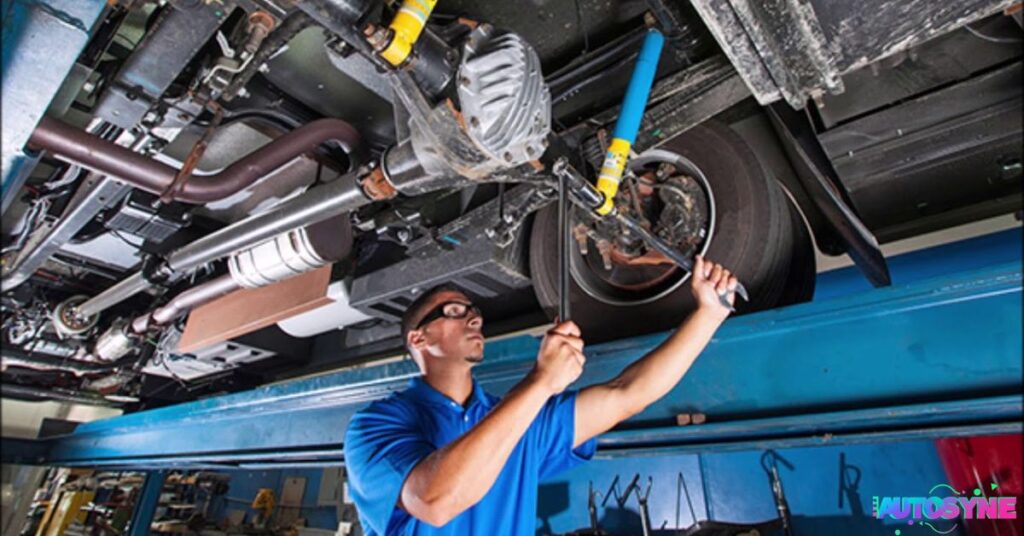Looking about how much it costs to repair or replace your car’s suspension? You are in the right place. In this guide, we will break down the factors that influence suspension repair and replacement costs, helping you understand what to expect when it comes to maintaining your vehicle’s suspension system.
Is your car bouncing more than usual, making it difficult to maintain control. Whether you are navigating city streets or cruising down the highway, a smooth and stable ride is essential for both comfort and safety. But when your car’s suspension starts to wear out, it can lead to a rough and unpredictable driving experience.
In this article, we will explore the world of suspension repair and replacement costs, uncovering what factors contribute to the expense and how you can ensure a smoother journey ahead. So buckle up, and let’s take a closer look at what it takes to keep your ride in top condition.
Suspension Replacement Cost
On average, replacing shock absorbers or struts can cost between $450 and $1,200, with labor making up about $150 to $300 of that.
Other factors, like getting your wheels aligned and the quality of the new parts, can also affect the total cost. Understanding these things can help you make smart choices about taking care of your car’s suspension.
Factors Impacting the Repair Price
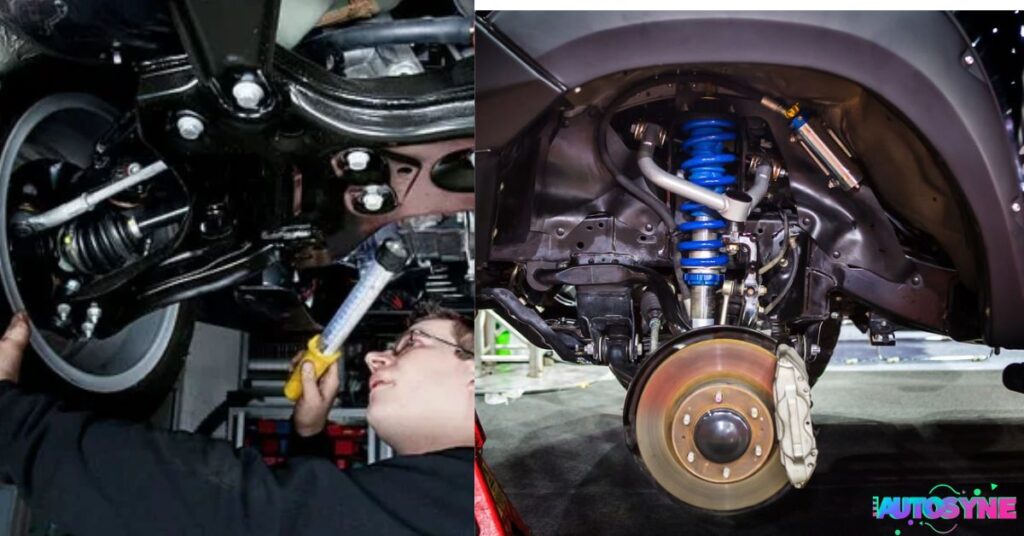
Many factors affect the price of repair. The type of suspension your car has matters. The make and model of your vehicle also play a role. Damage extent is crucial too. Plus, the parts used for repairs, like OEM or aftermarket, influence the cost.
Labor costs can vary widely, depending on shop rates and the complexity of the job. Where the shop is located can affect pricing too. Additionally, tools needed and any additional issues found during repairs can add to the cost.
Average Cost of Suspension Repairs
When it comes to suspension repairs, costs can vary. On average, fixing shock absorbers or struts may range from $450 to $1,200. Labor costs usually make up $150 to $300 of that amount.
These figures can change based on factors like the age of your vehicle and the complexity of the repair job. It is important to get estimates from different shops to find the best deal.
Also Read This Blog: How much does it cost to Straight Pipe a Car?
Labor Costs in Your Region
Labor costs for suspension repairs can vary depending on where you are. On average, mechanics charge between $50 and $120 per hour for their services.
These rates can fluctuate based on factors such as the expertise of the mechanic, the geographic location of the shop, and whether it is a dealership or an independent repair shop. Keep in mind that labor expenses often make up a significant portion of the total bill for suspension repairs.
Does Car Suspension Repair Cost Differ by Car Make and Model?
Yes, the cost of car suspension repairs varies depending on the make and model of the vehicle. Luxury cars like BMWs may have higher repair costs due to their intricate suspension systems. Larger or performance vehicles with sophisticated suspension options can also demand more money and time for repairs.
What are the symptoms that indicate a car suspension repair?
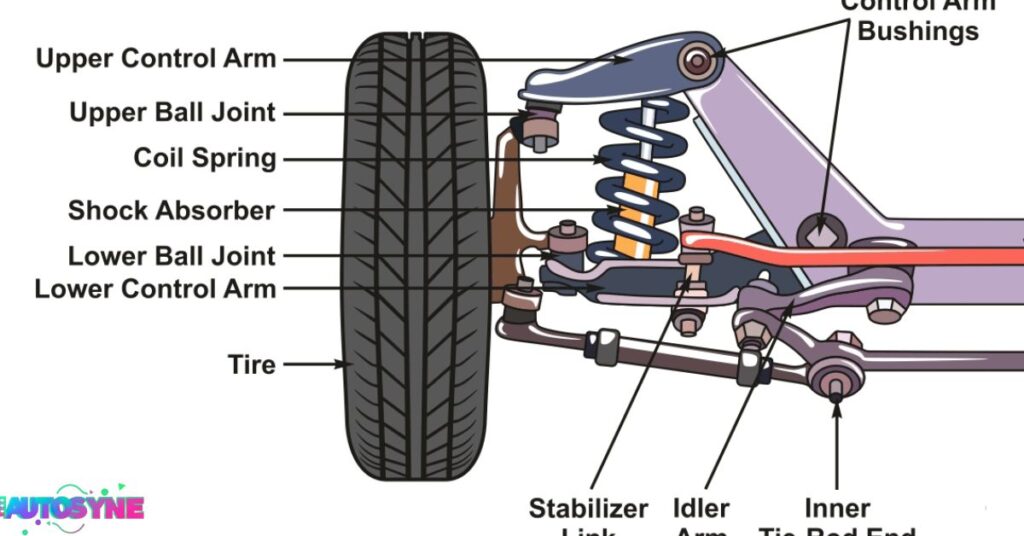
If your car feels bumpy, bounces a lot, or makes strange noises, its suspension might need fixing. You might also find it harder to steer or notice uneven tire wear. These signs suggest it’s time for a mechanic to check your suspension. Fixing it early can prevent bigger problems and keep you safe while driving.
Rough ride
A rough ride means your car feels bumpy when you are driving. It is like you are hitting a lot of small bumps, even on smooth roads. This could happen if your car’s suspension is not working properly. It is uncomfortable and can make driving less enjoyable.
If you are experiencing a rough ride, it is a good idea to have your suspension checked by a mechanic to see if it needs fixing. Fixing it can make your drives smoother and more comfortable.
Also Read This Blog: Most Loved Car Show Prize Ideas (And 4 To Avoid)
Added bounce
It feels like the car does not settle down quickly after going over bumps. This bouncing motion can make your ride feel unstable and uncomfortable. It is a sign that your car’s suspension might need attention.
Difficult to control
You might notice that the steering feels loose or that the car sways more than it should, especially when you’re turning or changing lanes. This difficulty in controlling the vehicle can be concerning and could indicate problems with the suspension.
Unusual sounds
Strange noises from your car, like squeaks, clunks, or grinding sounds, could mean there is something wrong with the suspension. You might hear these noises when driving over bumps or rough roads. Squeaks could come from worn-out parts, while clunks or grinding might mean something is loose or damaged.
Irregular tire wear
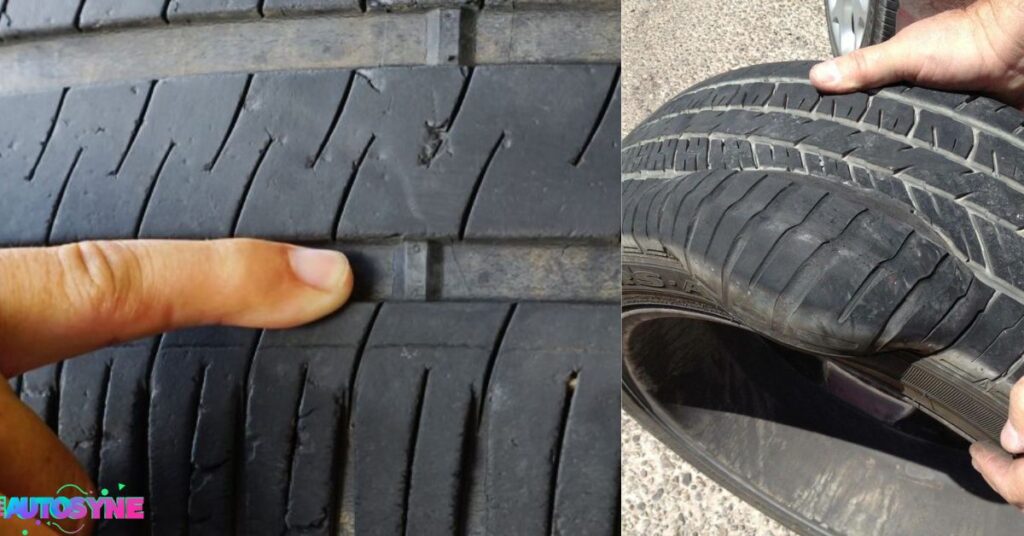
Irregular tire wear means your tires wear down unevenly. You might see bald spots or more wear on one side. This happens when your car’s suspension is not working right. It can make your tires touch the road in the wrong way.
What are the factors that affect your car suspension repair cost?
The cost of car suspension repairs can be affected by various factors such as the type of suspension, the make and model of the vehicle, and the extent of damage.
The brand and model of your car

The brand and model of your car affect suspension repair costs. Luxury or performance vehicles often have higher repair expenses due to specialized parts and labor. Additionally, older cars with corrosion may require more time and effort to repair, impacting the overall cost.
The damages and the components that require repair
The extent of damage and the specific components requiring repair play crucial roles in determining suspension repair costs. If multiple parts are damaged or need replacement, the overall expenses can escalate.
The complexity of repairing certain components, such as shock absorbers or control arms, may also influence the final repair bill. Understanding the extent of damage and which components need attention can help vehicle owner’s budget effectively for suspension repairs.
The garage near your home
The choice of garage near your home can impact suspension repair costs. Different repair shops may have varying labor rates and pricing for replacement parts. The expertise and reputation of the mechanics can affect the quality of the repair work and, consequently, the overall cost.
The suspension component’s brand
The brand of suspension components can affect repair costs. Some brands may offer higher-quality parts that last longer but come with a higher price tag.
On the other hand, opting for less expensive brands might save money upfront but could result in more frequent repairs down the line. It is important to consider both the initial cost and the long-term durability of the suspension components when making repair decisions.
Your auto insurance
Your auto insurance coverage can influence suspension repair costs. While standard policies typically don’t cover routine wear and tear, they may help if the damage is caused by an accident or covered event.
The extent of coverage can vary, so it’s essential to review your policy carefully. Additionally, some insurance providers offer extended warranties or mechanical breakdown insurance that may cover suspension repairs.
Understanding your insurance coverage can help offset some of the expenses associated with suspension repairs.
How much does it cost to repair the front-end suspension?
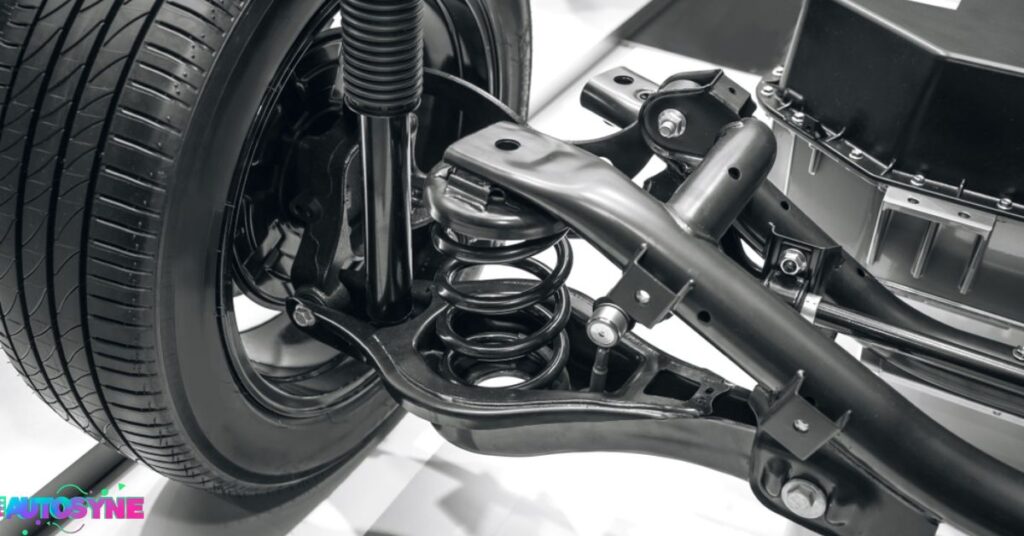
- The cost to repair the front-end suspension can vary widely depending on several factors.
- On average, the repair may range from $1,000 to $5,000.
- Factors influencing the cost include the type of car, the cost of replacement parts, and the complexity of the repair.
- Front-end suspension repairs may involve replacing components such as shock absorbers, struts, ball joints, or control arms.
- Additional expenses like wheel alignment may also be necessary after front-end suspension repairs.
- It’s essential to obtain quotes from multiple mechanics or repair shops to determine the exact cost for your specific vehicle and repair needs.
Does car suspension repair cost differ by car?
- Car suspension repair costs can vary depending on the type of car you own.
- Luxury or performance vehicles typically have higher repair expenses due to specialized parts and labor.
- Larger vehicles like trucks or SUVs may also incur higher costs due to the complexity of their suspension systems.
- Older cars with corrosion or rust may require more extensive repairs, impacting the overall cost.
- Comparing quotes from different mechanics or repair shops can help you find the best deal for your car’s suspension repairs.
Can suspension be repaired by yourself?
Fixing your car’s suspension yourself can work if you know how and have the right tools. Simple jobs like changing shock absorbers or sway bar links are doable for DIY fans.
But if it is complicated, like dealing with advanced parts or needing special tools, it is better to let experts handle it. Doing it you without the right knowledge or tools can make things worse.
When should I replace my car’s suspension?
You should consider replacing your car’s suspension if you notice any signs of wear or damage. These signs may include a rough ride, unusual noises, difficulty controlling the vehicle, or irregular tire wear.
If your car has traveled more than 50,000 miles, it may be time to inspect and potentially replace the suspension components. It is essential to address suspension issues promptly to ensure safe and comfortable driving.
How long does it take to repair a suspension?
Repairing a suspension can take a different amount of time. Simple fixes, like changing shock absorbers, might only need a few hours. But if it is a big job, like replacing control arms, it could take a whole day or more.
The time also depends on how busy the repair shop is and if they have all the parts needed. You can ask your mechanic for a better idea of how long it might take to fix your car’s suspension.
How much does the Nissan 350Z front suspension repair cost?
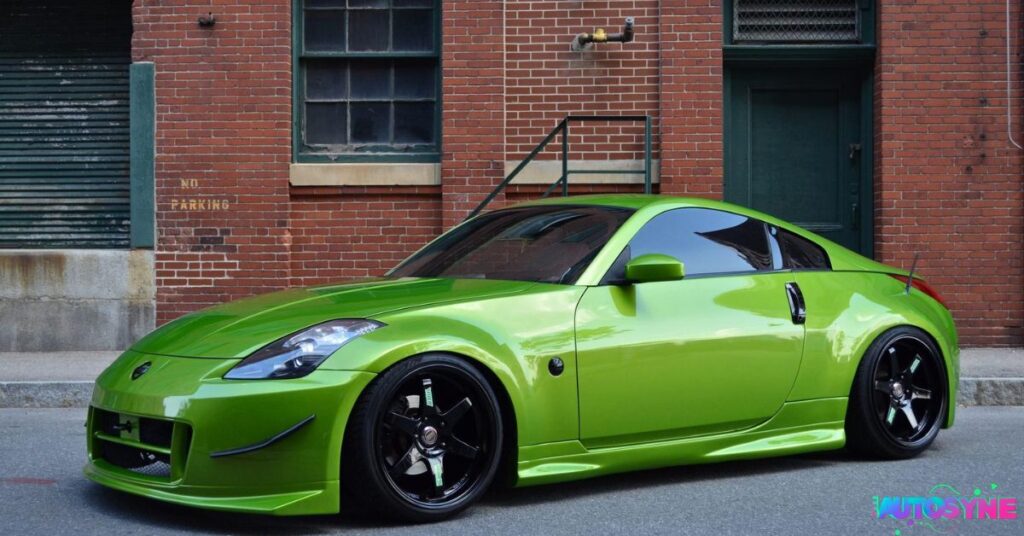
The cost of front suspension repair for a Nissan 350Z can vary depending on several factors such as the extent of damage, the specific components needing replacement, and labor rates at different repair shops. However, here are some approximate costs based on common repairs:
- Front shock absorber replacement: $200 to $300 for parts.
- Control arm replacement: $150 to $250 for parts.
- Labor costs: $150 to $300, depending on the complexity of the repair and the mechanic’s rates.
- Wheel alignment may be necessary after suspension repairs, adding an additional $60 to $100 to the total cost.
- Overall, front suspension repair for a Nissan 350Z may range from $500 to $1000 or more, depending on the specific repairs needed and where the work is done.
How much does Range Rover air suspension repair cost?
Fixing the air suspension in a Range Rover can be pricey because it is quite complex. Depending on what needs fixing and the model year, it could cost between $1,000 to $6,000.
This covers replacing parts like the air compressor and springs, with labor adding around $230 to $300. Prices can vary, so it is smart to get quotes from different repair shops before deciding.
Can I drive with a damaged suspension?
It is not safe to drive with a damaged suspension. A damaged suspension can affect your ability to control the car, especially during turns or braking. It can also make the ride uncomfortable and increase the risk of accidents.
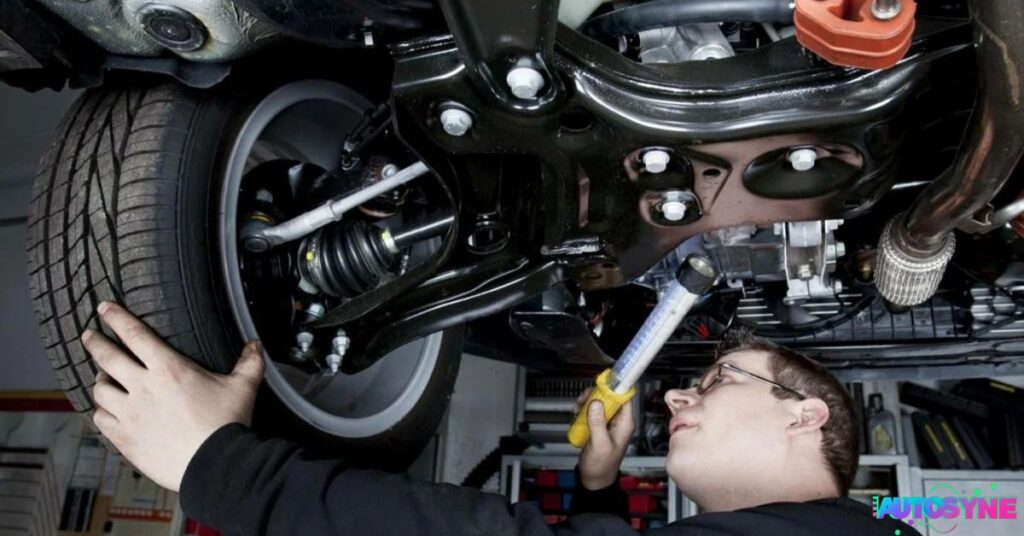
Driving with a damaged suspension can further damage other components of the car and lead to more costly repairs. If you suspect your suspension is damaged, it is best to have it inspected by a mechanic and repaired as soon as possible to ensure your safety on the road.
Frequently asked questions
What are the basics of suspension system?
The basics of a suspension system involve components like springs, shock absorbers, and linkages that work together to absorb shocks from the road, maintain stability, and provide a comfortable ride.
What needs to be replaced in suspension?
Parts that may need replacing in a suspension system include shock absorbers, springs, control arms, ball joints, and bushings, depending on wear and tear.
What are the 4 types of suspension system?
The four main types of suspension systems are independent suspension, dependent suspension, semi-independent suspension, and active suspension.
Which type of suspension is best?
The best type of suspension depends on factors like vehicle type, intended use, and personal preference. Independent suspension is often considered the most versatile and provides better handling and comfort.
What is a 5 link suspension?
A 5-link suspension is a type of independent suspension that uses five links or arms to control wheel movement and provide stability and control.
What is rigid suspension system?
A rigid suspension system is a simple suspension setup that uses solid connections between the wheels and chassis, offering minimal flexibility and comfort.
What is air suspension in cars?
Air suspension in cars uses air-filled rubber bags or air springs to support the vehicle’s weight and adjust ride height and stiffness electronically or manually.
What is hydraulic suspension system?
A hydraulic suspension system uses hydraulic fluid to absorb shocks and control ride height, offering a smoother ride and adjustable stiffness.
What is 2 axle air suspension?
A 2-axle air suspension is a suspension system that supports two axles of a vehicle using air springs, providing improved load carrying capacity and ride comfort.
What is the principle of air spring?
The principle of an air spring involves trapping compressed air in a flexible container, which expands and contracts to absorb shocks and provide cushioning, resulting in a smoother ride.
Conclusion
Understanding the basics of suspension systems and the various components involved is essential for vehicle owners to maintain safety and comfort on the road. Whether it’s replacing worn-out parts or choosing the right suspension type for your vehicle, knowledge of suspension systems empowers drivers to make informed decisions. With advancements in technology, options like air suspension and hydraulic systems offer customizable ride experiences tailored to individual preferences. By staying informed about suspension principles and staying proactive with maintenance, drivers can ensure smoother rides, improved handling, and ultimately, safer travels on the road.

Thomas is a seasoned automotive writer with five years of expertise. His passion for cars fuels insightful articles on industry trends, technology, and driving experiences.

